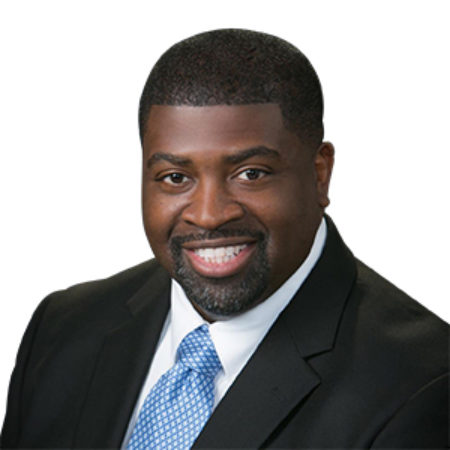Successful facilities management starts with the facilities manager (FM)—not the programs sold by large providers—so finding the right manager is imperative. This article details the traits to look for when selecting a service provider for facilities management. Having the right person at the helm can help you navigate a myriad of work-related issues and promote a work environment that fosters inclusivity and operational excellence.
Understanding the Job of a Facilities Manager
Those assigned with selecting an FM often have no experience in the field themselves, and when they apply traditional human resources practices to the endeavor, they receive only mediocre candidates who eventually fail to fulfill organizational goals. To differentiate a good FM from a great one, you must first understand what the job entails.
FMs are responsible for several tasks, including overseeing employee relationships, building efficient teams, and reconciling competing ideas. Their main goal is to consider how to take an organization to the next level. FMs are macro thinkers and consensus builders, and they work to achieve the right results.
FMs understand risk management and can identify and mitigate current and anticipated threats to the organization. They keep in tune not only with the organization’s needs and expectations but also with those of the environment in which the services are provided. FMs are aware of the business operations and identify items, processes, or services that could become an opportunity for the company, always considering how these factors impact the bottom line.
Today’s FMs need more than just credentials and professional management experience to effectively perform their jobs. They must be able to build strong relations with employees and strategic partners, have a sense of empathy, communicate effectively, and be culturally aware of the environment where the services will be provided. If your organization is looking for a great FM, you must make sure that the candidate has the capacity to tackle any situation that may come along.
An FM’s main job is to ensure that all facilities are running properly. This goes beyond protecting the real estate asset itself and includes creating a safe, clean, and healthy environment for building occupants and stakeholders.
Let’s look at some topics to consider when selecting the right manager . It’s important to note that hiring someone with past managerial experience isn’t enough; an FM needs to have experience in your organization’s field. For instance, a school runs very differently than a corporate office. Incompatible experience will significantly affect a candidate’s ability to run your facilities.
Are They Good or Great?
To evaluate whether FM candidates are right for your company, begin by asking them questions in a controlled environment—questions that require in-depth knowledge and experience to answer. This allows candidates to give the hiring committee an insight into their approach to operations so the committee can determine if the candidate will fit in the company’s culture and be able to provide the necessary services.
Oral interviews are a necessity. FM interviews should apply the Socratic method of inquiry: questions should lead to conversations, which confirm information and verify the responses originally provided in written form.
The questions should encourage candidates to demonstrate their proficiency for the role, and their answers should indicate that they possess some essential attributes: the five Cs of a great FM.
1. Composure
Is the candidate able to think on the go? With day-to-day activities presenting a variety of challenges, an FM must react quickly and effectively to address issues. When under pressure, is the candidate able to convey calmness to the facilities management team and maintain a collected work environment? Handling stressful situations is a crucial skill for the FM, and great FMs have presence and instill confidence in their customers, partners, and teammates.
2. Competence
Great FMs have credentials that go beyond those listed in the job description. They can demonstrate competency through their relatable, relevant, and transferable skills. This is important because every facility is operated and managed differently, and managers must understand the facilities under their care. To make calculated decisions, they must know how to gather the right information, including costs, consumption patterns, expenses, budgets, and trends. Critical thinking paired with an analytical approach goes a long way.
An FM who takes a process-oriented approach to operations encourages easier and faster delivery of a product or service. Increased traceability, metrics, and quicker decision-making are natural outcomes. A great FM is constantly thinking of processes and procedures to improve operations. A good FM is effectively reactive, but a great FM is proactive.
Be sure to ask candidates to describe facilities they currently manage and ones they managed in the past. This will give an interview committee insight into candidates’ level of involvement in the operations and their understanding of the assets. In the end, the committee’s goal is to select the best candidate overall—not just the best candidate on paper.
3. Compassion
The FM is an organizational leader. Great FMs are required to manage both their people and vendors to deliver the expected services. Effective communication, in-depth knowledge of the subject, and people skills will help motivate the facilities management team. A great FM will actively engage with staff and vendors to bring out the best performance.
Great FMs see key vendors as strategic partners and not simply as service vendors. They find ways to sincerely and intimately involve their strategic partners so an ownership of the services provided takes hold across the partners’ organizations too.
Great FMs are interested in employee recognition as a core operating principle of the department they oversee. Average FMs simply fail to see the value in recognizing others and only do so when they are externally forced to, missing an opportunity for meaningful connection. Facing these empty gestures, employees and strategic partners may feel they are not valued as a contributor—a sentiment that can deeply permeate an organization. Conversely, FMs who take the time to recognize employees and partners will notice heightened collaboration and commitment to the organization’s success.
4. Cultural Awareness
The FM is a departmental leader managing processes that directly affect people. Are your FM candidates able to work in and manage a diverse work environment? Many professional organizations conduct diversity training, and many tout their track records for diversity and inclusion (D&I). However, there is so much more to the topic. The screening process is the time to find out whether the candidates fostered or complied with D&I initiatives.
Adaptability is another characteristic that indicates an FM’s ability to be culturally aware in the workplace. Authentically identifying with others is the highest form of cultural awareness, and when FMs achieve this, they will be more in tune with how they should lead and deploy resources to fulfill organizational goals.
A culturally aware FM will also work to create an active safety culture within the organization. An active safety culture will demonstrate the requisite care and concern a proactive FM must exemplify to be considered a great FM.
5. Communication
Great FMs have effective communication skills and are proactive and transparent, creating a culture of collaboration and improving operations across the organization.
Good FMs put out fires on a day-to-day basis, but great ones constantly think about prevention. When issues arise, great managers will stay updated with the entire team while keeping track of their work and clients. Instead of continuing to put out fires, they’ll find ways to ensure the fire never starts again. They are clear when answering questions about upcoming tasks, the resources spent, and how they will improve workflow. At the end of the day, great FMs move departmental mindsets from reactive to proactive.
Good FMs cross their fingers hoping, for example, that the HVAC system does not fail. Great FMs have a contingency plan in place to mitigate unforeseen system failures. Issues tend to continually arise, and great FMs know precisely how to respond in such instances. A good FM may have a contingency plan written or filed. A great one will not only have contingency plans filed but will also have documented training on the contingency plan with the responsible team members so service interruption is minimized.
Good FMs will have a team they oversee, whereas great FMs create interdisciplinary environments that promote collaboration and autonomy so teams are more likely to experience success both individually and collectively.Great FMs are not micromanagers. They simply do not have the time for it—they are too busy developing their teams. Great FMs know that they cannot accomplish all tasks alone and that it is better to give employees the latitude to make decisions and own their work processes. They are able to put accountability measures in place for subordinate employees while giving them the space to experiment and innovate, generating results that benefit the organization.
Hire a Leader
At the end of the day, FMs are, in fact, managers: They are expected to manage a department, a team, and an operation, all of which require leadership skills. Why not make sure they are strong leaders? Much of what makes a capable leader is intuitive, and what is not intuitive can be learned. What traits should your FM possess based on the current environment and the direction the organization sees itself going? Should the FM be generally easygoing or have an edge? Either one may work well in different situations, but flexibility is especially valuable.
Facilities management is a dynamic profession. Every day is different, and problems pop up without warning. Selecting the wrong FM for your operation will increase your organization’s risk exposure and demoralize employees. It has been repeatedly found that inexperienced people in positions of scope become more concerned with job survival rather than the success of the operation. Their focus shifts from the operation to the organization’s politics and culture, which their limited skills cannot rise above.
Does your FM have these five Cs? If so, you can take heart that the operation is in good hands and is heading in the right direction.




